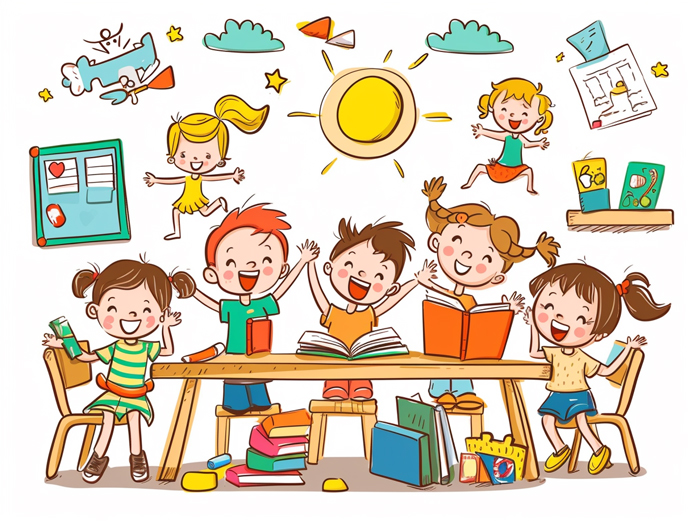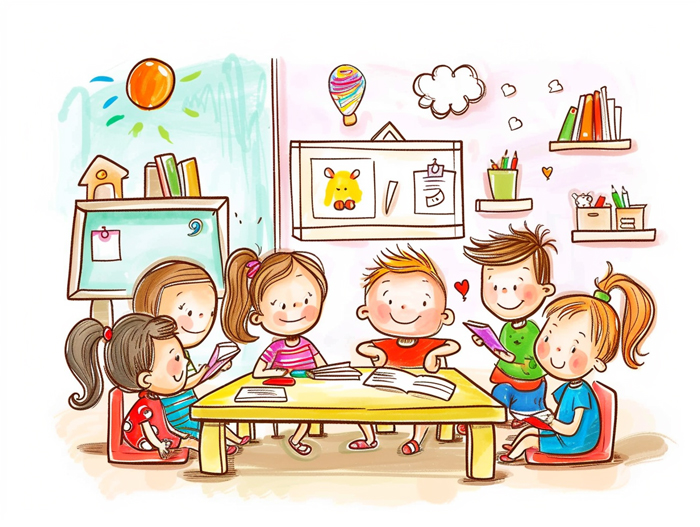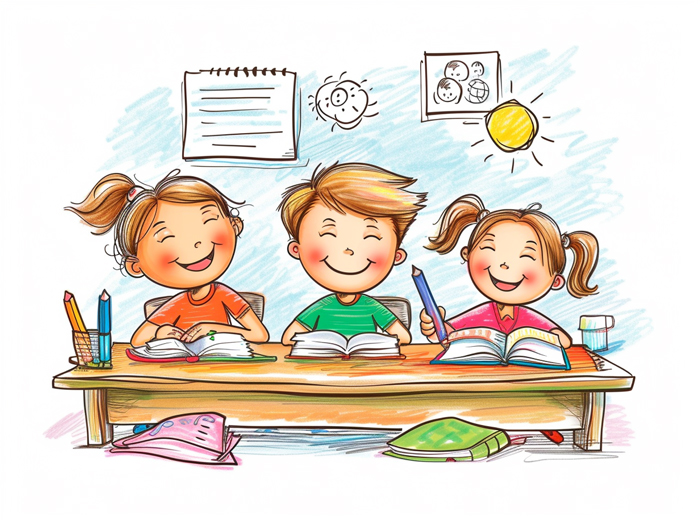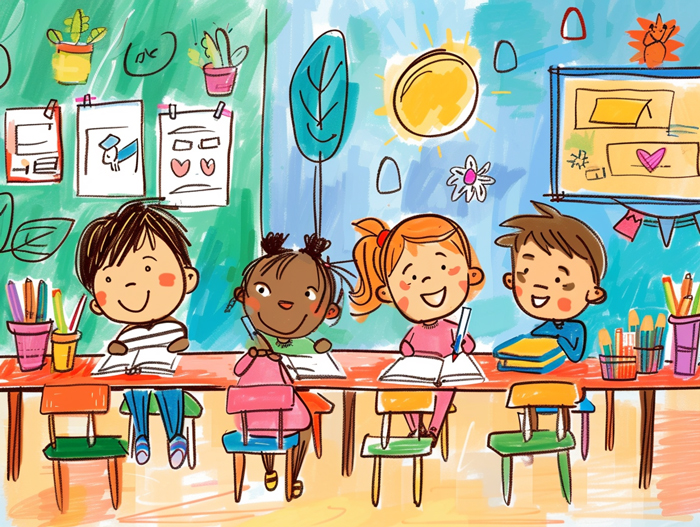Hey there! Looking to learn more about academic experience? Well, you’ve come to the right place! In this article, I’ll be sharing some fascinating examples of academic experiences that will give you a whole new perspective on the world of education. Whether you’re a student looking to enhance your own academic journey or simply curious about the diverse range of academic experiences out there, this article has got you covered.
Definition List For Examples of academic experience
When it comes to academic experiences, there is a wide range of possibilities that can enrich and expand our educational journey. Let’s explore some examples of academic experiences that can provide valuable insights and unique perspectives:

- Internships: These are powerful opportunities for students to gain hands-on experience in a professional setting related to their field of study. Internships allow students to apply their knowledge in real-world situations, build networks, and develop valuable skills.
- Research Projects: Engaging in research projects allows students to delve deep into a specific topic, conduct experiments, analyze data, and contribute to the existing knowledge in their field. Research projects are often collaborative and provide a chance to work closely with faculty members or peers.
- Study Abroad Programs: Studying abroad offers students a chance to immerse themselves in different cultures, learn from international perspectives, and gain a global mindset. It presents opportunities to explore diverse academic systems, languages, and gain new insights into various subjects.
- Volunteer Work: Engaging in volunteer work allows students to contribute to their communities while gaining valuable skills and experiences. It provides opportunities to develop empathy, leadership skills, and a sense of social responsibility.
- Field Trips: Field trips offer students a chance to learn outside the classroom, gaining hands-on experience at museums, historical sites, nature reserves, and more. These experiences foster a deeper understanding of the subject matter and stimulate curiosity.
- Seminar Series: Attending seminar series or workshops allows students to listen to experts in their field, engage in discussions, and stay updated on the latest research and trends. It provides opportunities to connect with professionals and gain insights from their expertise.
- Peer Mentorship Programs: Participating in peer mentorship programs provides students with guidance, support, and advice from experienced peers. It fosters a sense of community, encourages collaboration, and helps students navigate their academic journey.
Academic experiences are not limited to these examples, but they showcase the diversity and richness of opportunities available. By exploring these varied experiences, students can broaden their horizons, gain valuable skills, and enhance their academic journey.
Remember, academic experience goes beyond the traditional classroom setting, and embracing these opportunities can lead to a transformative educational journey.
Benefits of Academic Experience

Enhanced Learning
When it comes to academic experience, one of the key benefits is enhanced learning. Through engaging in various academic activities, students have the opportunity to expand their knowledge and understanding in a practical and meaningful way. Here are a few advantages of academic experience that contribute to enhanced learning:
- Application of Knowledge: Academic experiences allow students to apply what they have learned in the classroom to real-world situations. Whether through internships, research projects, or field trips, students can see firsthand how their knowledge translates into practice.
- Critical Thinking Skills: Engaging in academic experiences promotes critical thinking skills. Students are challenged to analyze information, evaluate different perspectives, and develop informed opinions. This fosters a deeper understanding of the subject matter and encourages independent thinking.
- Interdisciplinary Connections: Academic experiences often involve collaboration across different disciplines. This interdisciplinary approach helps students see the connections between various subjects, broadening their perspective and fostering a holistic understanding of complex issues.
Personal Development
Another significant benefit of academic experience is personal development. Through these experiences, students have the opportunity to develop important life skills and qualities that go beyond academic knowledge. Here are a few ways in which academic experiences contribute to personal development:
- Self-Confidence: Engaging in academic experiences can boost self-confidence. Accomplishing tasks, overcoming challenges, and receiving positive feedback from mentors and peers can all contribute to a sense of achievement and self-assurance.
- Communication Skills: Academic experiences often require effective communication with others. Whether it’s presenting research findings, collaborating in group projects, or interacting with professionals in the field, students can enhance their communication skills and become more confident and articulate.
- Adaptability and Resilience: Academic experiences often involve navigating unfamiliar situations and overcoming obstacles. Students learn how to adapt to new environments, handle setbacks, and persevere in the face of challenges. This fosters resilience and equips them with valuable life skills.
Skill Building
Lastly, academic experiences offer numerous opportunities for skill building. In addition to gaining subject-specific knowledge, students can develop a range of transferable skills that can benefit them in various aspects of life. Here are a few examples of skills that can be enhanced through academic experiences:
- Research Skills: Engaging in research projects can develop critical research skills, such as conducting literature reviews, gathering and analyzing data, and presenting findings in a clear and coherent manner.
- Leadership Skills: Being involved in academic experiences often requires taking on leadership roles within teams or projects. This allows students to develop leadership qualities, such as effective decision-making, communication, and problem-solving skills.
- Time Management: Through juggling academic responsibilities, extracurricular activities, and personal commitments, students learn how to manage their time effectively. This skill is essential for success both in academia and beyond.
By engaging in academic experiences, students not only enhance their learning but also develop personally and acquire valuable skills that can contribute to their future success. These benefits highlight the importance of actively seeking out and participating in a variety of academic experiences throughout one’s educational journey.
Types of Academic Experience
As an expert in academic experiences, I’d like to share with you some examples of different types of academic experiences. These experiences can greatly benefit students, enhancing their learning, personal development, and the acquisition of valuable skills for future success.

Coursework
One of the most common types of academic experience is coursework. This involves taking a variety of classes in different subject areas. From English to Mathematics to Science, coursework exposes students to a wide range of knowledge and helps them develop a solid foundation in various academic disciplines.
Research Projects
Another valuable academic experience is engaging in research projects. This involves conducting investigations and experiments to expand knowledge in a particular field. By participating in research projects, students can sharpen their critical thinking skills, learn how to analyze data, and gain a deeper understanding of a specific subject.
Internships
Internships provide students with an invaluable opportunity to apply their classroom knowledge in real-world settings. Whether in a corporate office, a hospital, or a nonprofit organization, internships allow students to gain hands-on experience and develop valuable skills directly related to their chosen field of study.
Study Abroad Programs
For those seeking a more immersive academic experience, study abroad programs offer the chance to live and learn in a different country. By immersing themselves in a foreign culture, students can broaden their global perspective, develop language skills, and gain a deeper appreciation for diversity and intercultural communication.
Extracurricular Activities
Beyond coursework and formal programs, extracurricular activities also play a significant role in shaping a student’s academic experience. Joining clubs, participating in sports teams, or engaging in artistic endeavors provide opportunities for students to develop leadership skills, pursue their passions, and build a well-rounded profile.
Academic experiences come in various forms, including coursework, research projects, internships, study abroad programs, and extracurricular activities. Students who engage in these experiences can enhance their learning, broaden their horizons, and acquire valuable skills that will serve them well in the future.
Examples of Academic Experience

As someone who has been through the academic journey myself, I can confidently say that there are various types of academic experiences that can greatly benefit students. In this section, I’ll provide you with some notable examples to give you a better understanding of what these experiences entail.
Honors Courses
One example of an enriching academic experience is taking honors courses. These are advanced classes that offer a more challenging curriculum and provide students with the opportunity to delve deeper into their areas of interest. By taking honors courses, students can engage in more stimulating discussions, work on complex projects, and cultivate critical thinking skills.
Thesis Project
Another valuable academic experience is undertaking a thesis project. A thesis project involves conducting extensive research on a specific topic within one’s field of study and presenting the findings in a comprehensive paper. This experience allows students to apply their research and analytical skills while making a meaningful contribution to their field. It’s an excellent opportunity to work closely with faculty members and gain expertise in a particular area.
Work-Study Program
Participating in a work-study program is yet another way to gain valuable academic experience. These programs provide students with the chance to work on campus or in related industries, allowing them to apply what they’ve learned in the classroom to real-world situations. Work-study programs not only provide practical skills and knowledge but also help foster time management and organizational abilities.
Leadership Roles in Student Organizations
Engaging in leadership roles within student organizations is an invaluable academic experience that goes beyond the classroom. By taking on positions such as president, vice president, or committee chair, students can develop leadership skills, enhance their teamwork abilities, and make a positive impact on their campus community. This experience also presents opportunities for networking, event planning, and problem-solving.
Conclusion
As you can see, there are numerous examples of academic experiences that can greatly benefit students. Whether it’s through honors courses, thesis projects, work-study programs, or leadership roles in student organizations, each opportunity offers unique learning and growth possibilities. By actively seeking out and embracing these experiences, students can enhance their academic journey and lay a strong foundation for their future endeavors.
Conclusion
In this article, I have explored various examples of academic experiences that can greatly enrich a student’s educational journey. By engaging in honors courses, thesis projects, work-study programs, and leadership roles in student organizations, students can gain valuable skills, knowledge, and personal growth opportunities.
Honors courses provide a challenging academic environment where students can delve deeper into their areas of interest and engage in rigorous intellectual discourse. Thesis projects allow students to undertake independent research and develop critical thinking and problem-solving skills. Work-study programs offer practical experience and the chance to apply classroom knowledge in real-world settings. Leadership roles in student organizations foster teamwork, communication, and organizational skills.
By actively seeking out and embracing these experiences, students can enhance their academic journey and lay a strong foundation for their future endeavors. These experiences not only contribute to personal growth but also make students more competitive in the job market and graduate school applications.
Embracing diverse academic experiences can open doors to new opportunities and pave the way for a successful and fulfilling academic journey.

